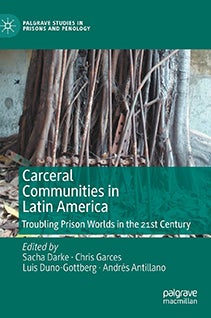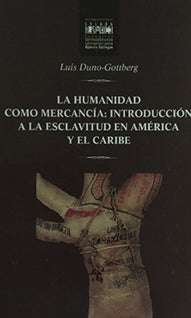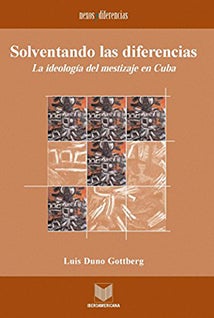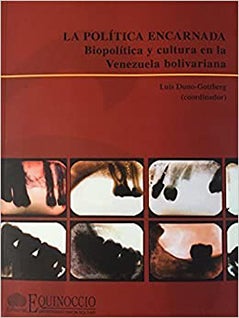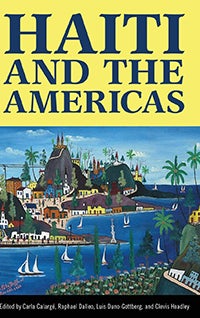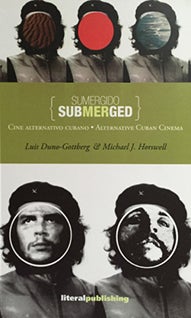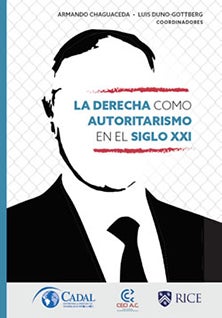Education
- PhD, University of Pittsburgh
Research and Teaching
- Caribbean Cultural Studies
- Film Studies
- Latin American Studies
Fall 2024 Courses
- EURO 499- European Studies Honor Thesis
Luis Duno-Gottberg specializes in Latin American and Caribbean culture from the nineteenth century to the present, with a particular emphasis on race and ethnicity, politics, and violence. His current book project, Dangerous People: Hegemony, Representation and Culture in Contemporary Venezuela, explores the relationship between popular mobilization, radical politics and political representation in Venezuela, while his pevious and ongoing work on “carceral communities” explores the daily life of prison communities, from Venezuela and Brazil to the Dominican Republic, as a specific bio-political order that also affects the wider civil society across Latin America. Additionally, Duno-Gottberg works on cinema in Venezuela and on the Haitian Revolution, and he also translated the first Haitian novel, Stella, from French first into English (2014) and then into Spanish (2016). He is regularly interviewed by newspapers from El Correo del Orinico in Venezuela to the Houston Chronicle, and he has also appeared on Univisíon.
At Rice, Duno-Gottberg is a faculty scholar in the Baker Institute for Public Policy and serves as magister of Baker College. Previously, he was magister of Duncan College (2009-15) and won the George R. Brown Award for Superior Teaching twice in 2015 and 2017.
Selected Publications
1. Books and Edited Volumes
- Ed. with Sacha Darke, Chris Garces, and Andres Antillano, Carceral Communities in Latin America: Troubling Prison Worlds in the 21st Century (Cham: Palgrave Macmillan, 2020).
- Ed. with Chaguaceda Armando, La derecha como autoritarismo en el siglo XXI (Buenos Aires: Centro para la Apertura y el Desarrollo de América Latina, 2020)
- Ed. with Manuel Gutierrez, The Films of Arturo Ripstein: The Sinister Gaze of the World (Cham: Palgrave-MacMillan,2019).
- Ed., La Politica Encarnada: Biopolítica y Cultura en la Venezuela Bolivariana (Caracas: Ediciones CELARG, 2015).
- La humanidad como mercancía: Introducción a la esclavitud en América y el Caribe (Caracas: Centro Rómulo Gallegos, 2014).
- Ed. with Raphael Dalleo, Carla Calargé, and Clevis Headley, Haiti and the Americas (Jackson, MS: University Press of Mississippi, 2013).
- Ed. with Michael Horswell, Submerged / Sumergido: Alternative Cuban Cinema (Houston, TX: Literal Publishing, 2013).
- Ed., Miradas al margen. Cine y Subalternidad en América Latina (Caracas: Cinemateca Nacional de Venezuela, Ministerio de Cultura, 2008).
- Imagen y Subalternidad: El Cine de Víctor Gaviria (Caracas: Cinemateca Nacional de Venezuela, Ministerio de Cultura, 2003).
- Solventar las diferencias: La ideología del mestizaje en Cuba. Frankfurt/M.-Madrid: Vervuert-Iberoamericana, 2003).
- Albert Camus. Naturaleza: Patria y Exilio (Caracas: Imprenta Universitaria, Universidad Central de Venezuela, 1994).
2. Journal Articles and Book Chapters
- “Mob Outrages: Reflections on the Media Construction of the Masses in Venezuela (April 2000-January 2003),” in Jens Andermann, Ben Bollig, Lorraine Leu, Daniel Mosquera, Rory O’Bryen, and David M. J. Wood (eds.), Latin American Cultural Studies: A Reader (New York: Routledge, 2017).
- “The Role of the State in Cuba and Venezuela,” in Marvin D’Lugo, Ana M. López, and Laura Podalsky (eds.), The Routledge Companion to Latin American Cinema (New York Routledge, 2017), 49-52.
- “Embodiments and Disembodiments of the Nation, the People, and the State: Disputing Bolivar’s Body,” in Maureen G. Shanahan and Ana M. Reyes (eds.), Simón Bolívar: Travels and Transformations of a Cultural Icon (Gainesville, FL: University of Florida Press, 2016), 230-45.
- “The Color of Mobs: Racial Politics, Ethnopopulism and Representation in Venezuela in the Chávez Era,” in David Smilde and Daniel Hellinger (eds.), Participation and Public Sphere in Venezuela’s Bolivarian Democracy (Durham, NC: Duke University Press, 2011), 271-97.
- “Geografías del miedo en el cine venezolano contemporáneo: Soy un delincuente (1976) y Secuestro Express(2005),” Revista Ensayos: Historia y teoría del arte 9 (2011), 40-64.
- “Narrating from the Ruins: Cubagua and La Galera de Tiberio by Enrique Bernardo Núñez,” Journal of Caribbean Literatures 6/2 (2010), 13-24.
- “Social Images of Anti-Apocalypse: Bikers and the Representation of Popular Politics in Venezuela,” A Contracorriente 6/2 (Winter 2009), 144-72.
- “Huellas de lo Real: Testimonio y cine de la delincuencia en Venezuela y Colombia,” Revista Iberoamericana LXXIV/223 (2008), 531-55.
